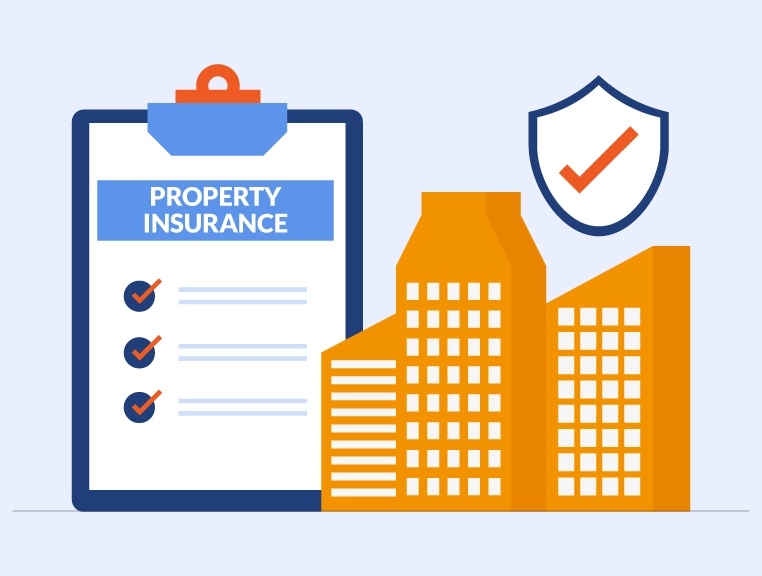Property insurance is an absolute necessity for protecting your real estate investments. Whether you’re a leasehold or freehold property owner, knowing the nuances in coverage is crucial for making wise insurance choices. Here, we’ll delve into the intricacies of property insurance policies, examining the variations between leasehold and freehold properties. Furthermore, we’ll explore additional relevant insurance options like commercial property insurance and fire insurance to offer you a comprehensive grasp of the topic. This articles explains the property insurance cover for Leasehold & Freehold properties.
Leasehold Properties and Property Insurance Policy Coverage
Leasehold properties are like having time-limited ownership where the homeowner enjoys living in and utilising the property under a lease agreement with the landowner. However, when the lease duration ends, the property reverts to the landowner’s possession, unless both parties agree to extend the lease through a renewal.
Insurance Cover for Leasehold Properties
When insuring a leasehold property, the property insurance policy typically covers:
- Contents Coverage: Protection for personal belongings and valuable assets inside the property, including furniture, appliances, and electronics.
- Liability Coverage: Coverage against third-party claims for injuries or property damage that occur within the leasehold property.
- Loss of Use Coverage: Financial assistance for additional living expenses if the property becomes temporarily uninhabitable due to a covered event.
Example: Suppose you’re leasing a condominium, and a burst pipe causes water damage to your furniture and electronics. With a comprehensive property insurance policy, you can file a claim to replace the damaged items and recover the expenses.
Freehold Properties and Property Insurance Policy Coverage
A freehold property means the homeowner possesses full ownership of both the property and land, without any time limitations. Unlike leasehold properties, freehold properties entail no lease agreements, granting the owner complete control and ownership rights over the property indefinitely.
Insurance Cover for Freehold Properties
P&C insurance coverage for freehold properties is more extensive than that for leasehold properties. It typically includes:
- Dwelling Coverage: Protection for the physical structure of the property, including the walls, roof, floors, and built-in fixtures.
- Other Structures Coverage: Coverage for structures not attached to the main dwelling, such as garages, sheds, and fences.
- Personal Property Coverage: Similar to leasehold properties, this covers personal belongings inside the property.
- Liability Coverage: Protection against legal claims for injuries or property damage that occur on the insured property.
Example: Let’s say a severe storm damage your freehold home, causing significant roof and structural damage. Having the right property insurance policy in place enables you to swiftly file a claim and cover the expenses required to repair damages and restore your property to its original pristine condition. Property Insurance Coverage for Leasehold vs. Freehold Properties
In conclusion, understanding the nuances of Property Insurance Cover for Leasehold & Freehold Properties empowers homeowners to make well-informed and secure choices.
Commercial Property Insurance
Commercial property insurance caters specifically to businesses that either own or lease properties utilised for commercial endeavours. This comprehensive insurance coverage shields businesses from potential financial setbacks caused by property damage or interruptions in business operations. It safeguards valuable physical assets and acts as a sturdy safety net for businesses in times of adversity.
Coverage for Commercial Properties
Commercial property insurance typically includes:
- Building Coverage: Protection for the physical structure of the commercial property.
- Business Personal Property Coverage: Coverage for equipment, inventory, and furniture used in the business.
- Business Interruption Coverage: Financial assistance for lost income and operating expenses if the business is forced to shut down temporarily due to a covered event.
Example: A fire breaks out in a retail store, damaging the building and destroying valuable merchandise. With commercial property insurance, the business owner can file a claim to repair the building, replace the inventory, and receive compensation for lost business income during the closure.
Fire Insurance
Fire insurance is a specific type of property insurance that focuses solely on protecting properties from fire-related risks.
Coverage under Fire Insurance
Fire insurance policies cover damages caused by fire incidents, including:
- Dwelling Coverage: Protection for the structure of the property, including walls, floors, and roofs.
- Contents Coverage: Coverage for personal belongings damaged or destroyed by fire.
Imagine this scenario: a sudden kitchen fire erupts in a home, leaving significant devastation in its wake, affecting not only the kitchen but also adjacent rooms. However, with the reliable protection of a comprehensive fire insurance policy, the homeowner can swiftly file a claim, securing the necessary funds to repair the fire-damaged sections and replace the belongings lost in the calamity.
Conclusion
In conclusion, online property insurance policies are essential for protecting real estate investments from various risks and uncertainties. No matter if you’re the proud owner of a leasehold or a freehold property, grasping the precise coverage options at your disposal empowers you. You can handpick the ideal insurance plan, perfectly customized to cater to your unique needs and requirements.
Moreover, both businesses and homeowners should seriously contemplate exploring additional insurance choices like commercial property insurance and home insurance, as they offer an extra layer of protection and tranquillity during unpredictable occurrences. To ensure optimum coverage for safeguarding your precious assets, make it a habit to regularly review your policy and seek counsel from seasoned insurance experts. It’s the key to securing peace of mind amidst life’s uncertainties.
About The Author
Shivani
MBA Insurance and Risk
She has a passion for property insurance and a wealth of experience in the field, Shivani has been a valuable contributor to SecureNow for the past six years. As a seasoned writer, they specialize in crafting insightful articles and engaging blogs that educate and inform readers about the intricacies of property insurance. She brings a unique blend of expertise and practical knowledge to their writing, drawing from her extensive background in the insurance industry. Having worked in various capacities within the sector, she deeply understands the challenges and opportunities facing property owners and insurers alike.




